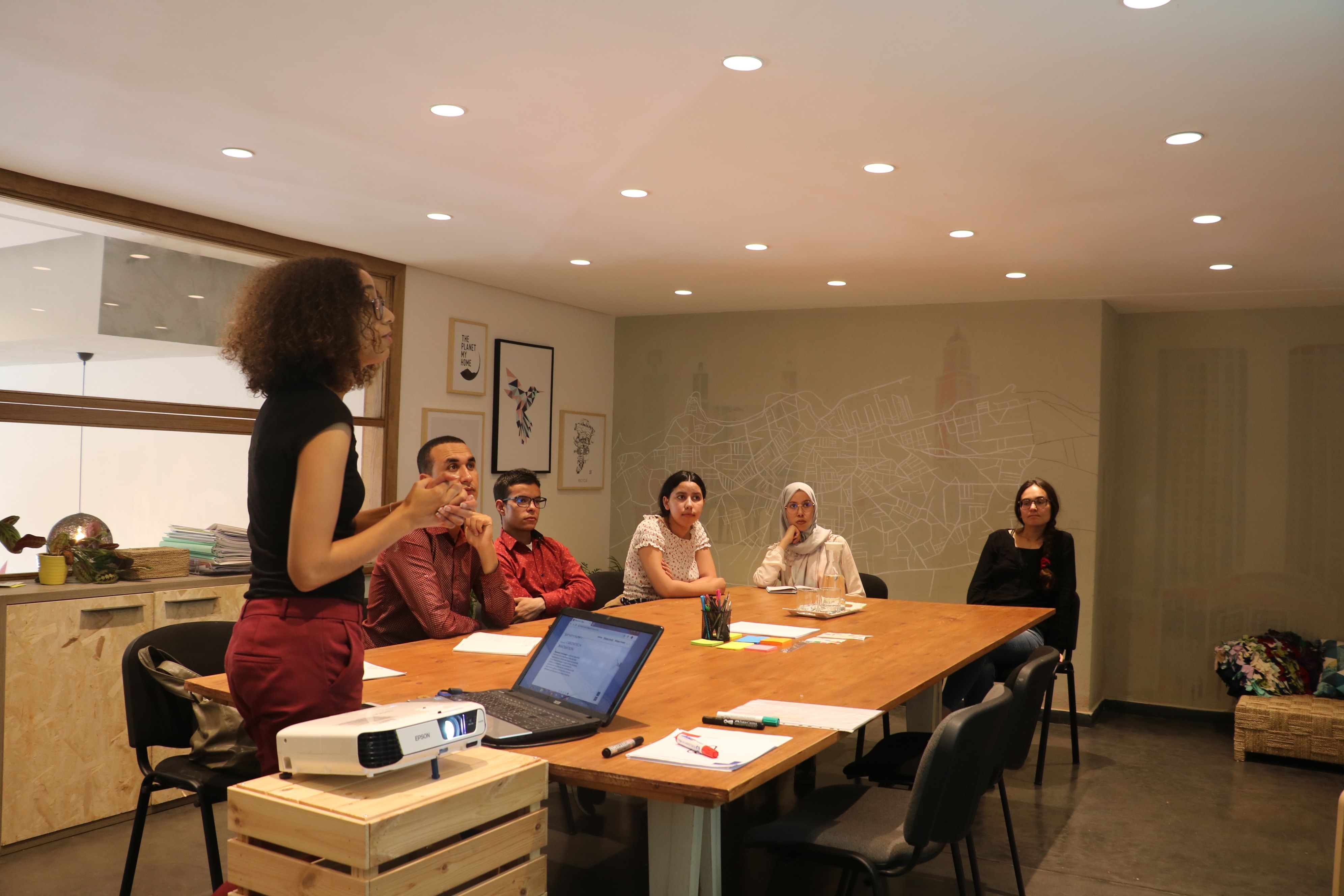
Welcome to our blog on the power of employee recognition survey questions! In a world where employees are the lifeblood of any organization, it's crucial to understand their needs, motivations, and desires. Employee recognition survey questions are an invaluable tool that empowers businesses to gain valuable insights and create a thriving work environment.
Whether you're a small startup or a multinational corporation, implementing an effective employee recognition program is essential for cultivating a positive and engaged workforce. By utilizing employee recognition survey questions, you can uncover the key areas where your employees feel valued, appreciated, and motivated. This feedback can then be used to develop tailored recognition strategies that drive productivity and boost employee morale.
We'll dive deep into the world of employee recognition survey questions, exploring their importance, crafting effective questions, and analyzing the data to create an impactful employee recognition program. So, if you're ready to unlock the secrets of employee engagement and unleash the full potential of your team, let's get started!
What Is An Employee Recognition Survey & What's Its Purpose?

It's easy to overlook the importance of recognizing and appreciating our employees. But let me tell you, employee recognition is a game-changer. It's like adding fuel to the fire of motivation and engagement. One powerful tool we have at our disposal to measure and improve employee recognition is the employee recognition survey.
What is an Employee Recognition Survey?
An employee recognition survey is a tool designed to gather feedback from employees about their experience with recognition in the workplace. It asks employees a series of questions to gauge their level of satisfaction with the recognition they receive, the impact it has on their motivation and morale, and their suggestions for improvement.
Why is Employee Recognition Important?
Employee recognition is like a magical elixir that boosts happiness, productivity, and retention. When employees feel valued and appreciated for their hard work and contributions, they are more likely to go above and beyond, take pride in their work, and remain loyal to the organization. It creates a positive work culture where everyone feels seen, heard, and motivated to do their best.
Now, let's dive into the key topics and questions that an employee recognition survey should cover:
1. Frequency of Recognition
How often are employees being recognized for their efforts? Are they receiving regular feedback and appreciation? This question helps identify if there is a lack of consistent recognition in the workplace.
2. Types of Recognition
What forms of recognition are being used? Are there opportunities for both formal and informal recognition? This question helps assess the variety and effectiveness of recognition programs in place.
3. Impact of Recognition
How does recognition impact employee motivation and morale? Does it make them feel more valued and engaged? This question helps measure the direct impact of recognition on employee satisfaction and performance.
4. Visibility of Recognition
Are recognition efforts visible to the entire organization? Are employees aware of their peers' achievements? This question helps determine if recognition is being shared and celebrated effectively throughout the company.
5. Suggestions for Improvement
What suggestions do employees have for improving the recognition culture? Are there any specific ideas or initiatives they would like to see implemented? This question gives employees a chance to contribute their thoughts and ideas to enhance the recognition experience.
An employee recognition survey is not just a box-ticking exercise. It's a powerful tool that allows you to tap into the hearts and minds of your employees. It provides valuable insights and actionable feedback that enables you to fine-tune your recognition programs and create a workplace where everyone feels appreciated and motivated to give their best.
So, don't underestimate the power of employee recognition. Embrace it, celebrate it, and watch your team soar to new heights of happiness and productivity.
Related Reading
• How To Improve Employee Morale • How To Motivate Your Team • Benefits Of Employee Recognition • Why Is Employee Recognition Important • Employee Recognition Benefits • How To Improve Employee Satisfaction • Culture Of Recognition In The Workplace • Employee Recognition Statistics • Best Practices For Employee Recognition • Employee Anniversary Recognition
40 Essential Employee Recognition Survey Questions

Understanding Employee Satisfaction
- How satisfied are you with your role within the company?
- Do you feel valued and appreciated for your contributions?
- Are you satisfied with the recognition and rewards you receive for your hard work?
- How well does the company promote a positive work environment?
- Do you feel your ideas and suggestions are valued?
- How satisfied are you with the communication and feedback provided by your manager?
- Are you satisfied with the opportunities for growth and development within the company?
- How satisfied are you with the work-life balance the company promotes?
- Do you feel motivated to perform at your best every day?
Recognizing Achievements and Efforts
- Have you received recognition for your achievements in the past year?
- How frequently are you recognized for your efforts?
- Do you feel that recognition is given fairly among employees?
- Are you satisfied with the ways the company acknowledges your hard work?
- Have you received any rewards or incentives for your performance?
- How well does the company celebrate milestones and accomplishments?
- Do you feel that your work is truly valued by your superiors?
- Are there opportunities for public recognition within the company?
- How satisfied are you with the clarity and transparency of the recognition process?
Teamwork and Collaboration
- Do you feel that your team members recognize and appreciate your contributions?
- How well does the company promote a culture of teamwork and collaboration?
- Are there opportunities for cross-functional collaboration within the company?
- Do you feel comfortable reaching out to colleagues for support and assistance?
- Are you satisfied with the level of support provided by your team members?
- How well does the company encourage knowledge sharing and learning among employees?
- Do you feel that your ideas and suggestions are valued by your team members?
- Are you satisfied with the level of communication and collaboration within your team?
- How well does the company promote a sense of belonging and camaraderie among employees?
Leadership and Management
- Are you satisfied with the recognition and feedback provided by your immediate supervisor?
- How well does your manager acknowledge your achievements and efforts?
- Do you feel that your manager sets clear expectations and goals for you?
- Are you satisfied with the coaching and mentoring provided by your manager?
- Do you feel comfortable sharing your concerns and feedback with your manager?
- How effectively does your manager communicate company updates and changes?
- Are you satisfied with the level of trust and respect established by your manager?
- Do you feel that your manager advocates for your professional growth and development?
- How well does your manager promote a positive and inclusive work environment?
Overall Satisfaction and Engagement
- Would you recommend this company as a great place to work?
- How likely are you to stay with this company for the next few years?
- Do you feel proud to be a part of this organization?
- Overall, how satisfied are you with your experience working for this company?
Asking these employee recognition survey questions will provide valuable insights into employee satisfaction, recognition practices, teamwork, leadership, and overall engagement. By addressing these topics, companies can identify areas for improvement and tailor recognition programs to foster a positive work environment that promotes employee motivation and loyalty.
How Can Surveys Help With Employee Recognition?

Employee recognition is crucial for creating a positive and productive work environment. It's not just about saying "good job" every once in a while, but about regularly acknowledging and appreciating employees for their efforts. One effective way to gather insights and feedback to improve your recognition programs is through employee recognition surveys. Let's explore how these surveys can help enhance employee recognition.
1. Uncover Employee Preferences
One of the primary benefits of conducting surveys is to uncover what types of recognition employees value. Each individual has unique preferences when it comes to recognition, and what motivates one person may not work for another. By asking targeted questions in your survey, you can gain a better understanding of the types of recognition that resonate with your employees. For example, you can ask about preferences for public recognition, monetary rewards, or personal thank-you notes. Armed with this information, you can tailor your recognition efforts to meet the specific needs and preferences of your employees.
2. Assess the Effectiveness of Current Recognition Programs
Do you know how effective your current employee recognition programs are? Surveys provide an opportunity to assess the impact and effectiveness of your existing initiatives. By asking questions about the frequency, impact, and overall satisfaction with current recognition programs, you can gain insights into what is working and what needs improvement. This feedback will help you make informed decisions about which aspects of your recognition programs should be enhanced or adjusted to better meet employee expectations.
3. Measure Employee Engagement and Satisfaction
Employee recognition and employee engagement go hand in hand. Engaged employees are more likely to feel valued and motivated, leading to higher productivity and job satisfaction. Surveys can be a powerful tool for measuring and tracking employee engagement and satisfaction levels. By including questions that gauge overall job satisfaction, commitment to the organization, and feelings of appreciation, you can gather valuable data on how recognition impacts these factors. This data can then be used to identify areas for improvement and implement targeted strategies to boost engagement and satisfaction.
4. Identify Unsung Heroes and Hidden Talents
Recognition surveys can help uncover hidden talents and give credit to those employees who consistently go above and beyond their job descriptions. By including questions that ask employees to nominate their colleagues for recognition, you can shed light on the unsung heroes within your organization. This not only gives well-deserved recognition to individuals who may not receive it otherwise but also fosters a culture of appreciation and camaraderie within the workplace.
5. Foster a Culture of Continuous Improvement
Surveys provide an opportunity for two-way communication between employees and management. By actively seeking feedback and suggestions for improvement, you demonstrate that you value the opinions and ideas of your workforce. This fosters a culture of continuous improvement, where employees feel empowered to contribute and make a difference. Recognition surveys can include open-ended questions that allow employees to share their thoughts, ideas, and suggestions for enhancing recognition efforts. This feedback can then be used to refine and strengthen your recognition programs, ensuring they align with the evolving needs and expectations of your employees.
Employee recognition surveys are a valuable tool for enhancing morale and engagement within your organization. By uncovering employee preferences, assessing the effectiveness of current programs, measuring engagement and satisfaction, identifying unsung heroes, and fostering a culture of continuous improvement, these surveys can help you create a workplace where recognition and appreciation thrive. So, don't wait any longer - launch your employee recognition survey and start making a positive impact on your workforce today!
Related Reading
• Employee Recognition Awards • Employee Recognition Examples • Employee Rewards And Recognition • Employee Recognition Letter • Employee Recognition Day • Employee Rewards Examples • Employee Rewards And Recognition Program Examples • Creative Employee Recognition Ideas • Employee Recognition Programs Examples • Recognition Examples For Employees • Examples Of Employee Recognition Awards • Employee Recognition Program Names • Types Of Employee Recognition • Employee Recognition Criteria • Employee Recognition Gifts • Employee Recognition Wall Ideas • Employee Recognition Gifts for Years of Service • Employee Recognition Points System • Virtual Employee Recognition Ideas
How To Create An Employee Recognition Survey

Creating an employee recognition survey is a crucial step in gauging employee satisfaction and boosting morale within your organization. By collecting feedback from your employees, you can identify areas of improvement and recognize those individuals who are excelling in their roles.
Begin by considering the type of survey format you will use and whether you will use survey software to make the process easier. For instance, if you decide on a pulse survey, which is a survey that is continually carried out to gain employees’ views on things like communication within the workplace and job-related roles, you may like to use pulse survey tools for business. You can also use employee survey software tools for evaluating employee engagement and satisfaction.
Crafting effective survey questions requires careful consideration to ensure accurate and actionable responses. Let's dive into the essential elements of designing an employee recognition survey that will yield valuable insights.
1. Start with a Warm-up Question: Setting the Tone
A warm-up question serves as an icebreaker, allowing employees to ease into the survey and establish a positive mindset. Consider asking a question that encourages employees to reflect on their achievements or express gratitude towards their colleagues. For example, "What is one accomplishment from the past month that you are proud of, either personally or as a team?" This question not only sets a positive tone but also gives employees an opportunity to recognize their own achievements from the get-go.
2. Measure Employee Satisfaction: Are They Feeling Valued?
To gauge employee satisfaction and how valued they feel within the organization, it's essential to include questions that directly address this aspect. For instance, "On a scale of 1-10, how valued do you feel by your immediate supervisor?" or "Do you feel that your accomplishments are recognized and appreciated by the company?" These questions allow you to understand the employees' perception of recognition and identify any areas where improvements can be made.
3. Evaluate Recognition Programs: Are They Effective?
If your organization has implemented recognition programs, it's crucial to assess their effectiveness. By asking employees for their input on these programs, you can identify what is working well and areas that need improvement. Consider questions such as, "Have you participated in any recognition programs within the company? If so, how effective do you find them?" or "Do you feel that the current recognition programs encourage a positive work culture?" These questions provide valuable feedback for optimizing existing programs or developing new ones.
4. Identify Preferred Forms of Recognition: Personalization Matters
Everyone appreciates recognition, but preferences vary from person to person. Including questions that identify employees' preferred forms of recognition allows you to tailor your appreciation efforts effectively. Ask questions like, "What forms of recognition do you find most meaningful? (e.g., public recognition, monetary rewards, extra time off)" or "How would you like to be recognized for exceptional performance?" These insights will help you understand how to motivate and reward employees in ways that resonate with them personally.
5. Solicit Suggestions for Improvement: Encouraging Innovation
Providing employees with the opportunity to share their suggestions for improvement demonstrates that their opinions are valued and encourages a culture of innovation. Include open-ended questions like, "What improvements or changes would you suggest to enhance the employee recognition program?" or "Is there anything you would like to see implemented in terms of recognition within the company?" These questions give employees a voice and provide valuable ideas for enhancing the recognition program.
6. Assess Overall Job Satisfaction: The Big Picture
In addition to specific recognition-related questions, it's essential to include broader questions that assess overall job satisfaction. By understanding how employees feel about their role, work environment, and career growth opportunities, you can identify factors that contribute to their overall happiness and productivity. Include questions such as, "On a scale of 1-10, how satisfied are you with your current job?" or "Do you feel that your role aligns with your career goals?" These questions provide a holistic view of employee satisfaction beyond recognition alone.
Crafting an effective employee recognition survey requires thoughtful consideration of each question's purpose and the insights it aims to gather. By addressing warm-up questions, employee satisfaction, recognition program effectiveness, preferred forms of recognition, suggestions for improvement, and overall job satisfaction, you can obtain valuable data to enhance your recognition initiatives. The goal is to create an engaging survey that encourages employees to provide honest feedback, ultimately boosting morale and productivity within your organization.
Guide On Understanding and Implementing Employee Recognition Survey Results

Setting the Stage for Success
The first step in understanding and implementing employee recognition survey results is setting the stage for success. This involves creating a supportive and inclusive work environment where employees feel comfortable providing honest feedback. By setting clear expectations and communicating the purpose and goals of the survey, employees are more likely to engage and share their thoughts openly.
Crafting Effective Survey Questions
Crafting effective survey questions is crucial to obtaining valuable insights. Begin by identifying the specific areas or behaviors you want to measure, such as teamwork, communication, or leadership. Use a mix of closed-ended and open-ended questions to gather both quantitative data and qualitative feedback. This combination will provide a comprehensive understanding of employee perceptions and experiences.
Analyzing the Survey Results
Once the survey responses are collected, it's time to analyze the results. Start by summarizing the quantitative data, such as percentages and averages, to identify overarching trends. Look for patterns and outliers that can shed light on specific areas of concern or success. Next, dive into the qualitative feedback to gain a deeper understanding of the reasons behind the numbers. Pay attention to recurring themes and specific examples that highlight both positive and negative experiences.
Identifying Areas for Improvement
With the survey results analyzed, it's important to identify areas for improvement. Look for gaps between employee expectations and reality, as well as areas where the organization is excelling. Prioritize the areas that have the greatest impact on employee engagement and satisfaction. This will help focus efforts and resources on initiatives that will drive positive change and address the most pressing concerns.
Creating an Action Plan
Creating an action plan is crucial to ensuring that survey results lead to meaningful change. Start by involving key stakeholders, such as managers and department heads, in the process. Together, identify specific actions and initiatives that will address the areas for improvement. Set clear goals and timelines for implementation and assign responsibilities to ensure accountability. Regularly communicate the progress and outcomes of the action plan to keep employees informed and engaged.
Implementing Recognition Programs
Implementing recognition programs is a powerful way to address the feedback received through the survey. Recognizing and appreciating employees' efforts and achievements can boost morale, motivation, and overall satisfaction. Consider implementing a variety of recognition initiatives, such as employee of the month programs, peer recognition, or personalized thank-you notes. Regularly review and adapt these programs based on employee feedback and evolving needs.
Monitoring and Evaluation
Monitoring and evaluating the impact of the implemented initiatives is essential to gauge their effectiveness. Continuously collect feedback from employees to assess their satisfaction and engagement levels. Monitor key metrics such as employee turnover, productivity, and customer satisfaction to measure the impact of the changes. Use this data to refine and improve the recognition programs and action plans over time.
Celebrating Success
Don't forget to celebrate success along the way. Acknowledge and appreciate the positive changes that have been achieved as a result of the employee recognition survey and subsequent initiatives. Share success stories and recognize individuals or teams who have contributed to the improvements. By celebrating success, you reinforce the value of employee feedback and recognition, creating a cycle of continuous improvement.
Implementing a thorough process for understanding and implementing employee recognition survey results is crucial for creating a positive and engaging work environment. By carefully crafting survey questions, analyzing the results, identifying areas for improvement, and implementing recognition programs, organizations can drive positive change and foster a culture of appreciation. Through ongoing monitoring and evaluation, organizations can continue to refine their initiatives and celebrate the success achieved along the way.
How to Analyze Employee Recognition Survey Data Effectively

Once you’ve gathered feedback through your employee recognition survey, the next crucial step is analyzing the data to identify actionable insights. Practical analysis transforms raw data into strategies to improve employee engagement, motivation, and overall satisfaction. Here's how to analyze employee recognition survey data effectively:
1. Categorize Responses by Themes
The first step in analyzing survey data is organizing the responses. Group similar answers into categories based on the types of questions asked. For example, responses to questions about recognition frequency might be grouped separately from feedback on the quality or impact of recognition. This helps you focus on specific areas needing attention, whether the recognition method, consistency, or impact.
2. Look for Trends and Patterns
Identify any recurring themes across the survey responses.
- Are employees consistently expressing dissatisfaction with how recognition is handled? Are there certain groups of employees who feel undervalued?
Look for patterns that indicate areas of strength or weakness in your current recognition system. These patterns provide the context for making improvements.
3. Quantify Key Data Points
If your survey includes quantitative questions (e.g., Likert scale ratings), looking at the average scores to measure overall sentiment is essential. If employees rate their recognition experience poorly, something needs to change. Comparing these scores across different departments, teams, or periods can also provide valuable insights into where the problem lies.
4. Identify Key Drivers of Recognition Satisfaction
By analyzing open-ended responses, you can uncover specific factors contributing to recognition satisfaction.
Do employees appreciate public recognition, or do they prefer private acknowledgment? Understanding these preferences allows you to tailor your recognition efforts to meet employee needs effectively.
5. Prioritize Actionable Insights
After identifying key findings, prioritize the areas that will significantly impact employee morale and retention. Focusing on high-priority areas helps you create a more effective, targeted employee recognition strategy.
By analyzing employee recognition survey data effectively, you can turn feedback into actionable steps that improve recognition practices and boost employee satisfaction and retention.
25 Employee Recognition Ideas To Improve Employee Engagement

1. "The Power of Appreciation: Recognizing Employees for a Job Well Done"
We explore the importance of showing appreciation to employees for their hard work and achievements. We discuss the positive impact that recognition can have on employee engagement and overall productivity.
2. "Shout It Out: Implementing a Public Recognition Program"
This topic delves into the benefits of implementing a public recognition program. We discuss the different ways to publicly acknowledge and reward employees, such as through company-wide announcements, newsletters, or social media platforms.
3. "Personal Touch: Individualized Employee Recognition"
Here, we emphasize the significance of personalized recognition. We explore ways to tailor recognition efforts to each employee's preferences and needs, such as by considering their interests, hobbies, or personal goals.
4. "Peer-to-Peer Recognition: Celebrating Colleague Success"
This topic highlights the power of peer-to-peer recognition. We discuss the benefits of creating a culture where employees can acknowledge and appreciate each other's achievements, fostering a sense of camaraderie and teamwork.
5. "Rewards That Matter: Finding the Right Incentives"
We delve into the importance of offering meaningful rewards. We discuss the significance of understanding employees' preferences and providing incentives that align with their values and motivations.
6. "Flexibility for Motivation: Tailoring Recognition to Different Generations"
Here, we explore the importance of recognizing and catering to the unique needs and preferences of different generations in the workforce. We discuss how to adapt recognition programs to motivate and engage employees across various age groups.
7. "Surprise and Delight: Unexpected Recognition"
This topic focuses on the power of surprise recognition. We discuss how unexpected gestures of appreciation can have a profound impact on employee morale and engagement, encouraging a positive work environment.
8. "Beyond Words: Tangible Recognition"
We emphasize the significance of tangible recognition. We discuss the value of providing physical rewards or tokens of appreciation, such as certificates, plaques, or custom-made gifts, to make recognition more memorable.
9. "Leveraging Technology: Online Recognition Platforms"
Here, we explore the benefits of using online recognition platforms. We discuss how these platforms can streamline the process of recognizing employees, making it efficient, accessible, and scalable for organizations of all sizes.
10. "Long-Term Impact: Recognizing Milestones and Longevity"
This topic delves into the importance of recognizing employees' milestones and longevity with the organization. We discuss the value of acknowledging their years of service, loyalty, and dedication, fostering a sense of pride and commitment.
11. "Wellness Recognition: Promoting Employee Health and Well-being"
We highlight the significance of recognizing and promoting employee health and well-being. We discuss the benefits of implementing wellness programs and initiatives that show appreciation for employees' physical and mental well-being.
12. "Feedback and Recognition: Connecting Recognition to Performance"
Here, we explore the relationship between feedback and recognition. We discuss the importance of tying recognition efforts to performance evaluations and fostering a culture of continuous improvement and growth.
13. "Inclusive Recognition: Celebrating Diversity and Inclusion"
This topic emphasizes the importance of recognizing and celebrating diversity and inclusion. We discuss the value of creating inclusive recognition programs that honor employees from different backgrounds, cultures, and perspectives.
14. "Two-Way Recognition: Encouraging Employee Appreciation for Leaders"
Here, we focus on the significance of two-way recognition. We discuss the benefits of encouraging employees to appreciate and recognize their leaders, fostering a culture of respect, trust, and mutual appreciation.
15. "Celebrating Small Wins: Micro-Recognition for Daily Accomplishments"
We emphasize the power of celebrating small wins. We discuss the importance of recognizing employees for their daily accomplishments, boosting motivation, and creating a positive work environment.
16. "Learning and Development Recognition: Highlighting Growth and Progress"
Here, we explore the importance of recognizing employees' learning and development efforts. We discuss the value of acknowledging their progress, skills gained, and professional growth, fostering a culture of continuous learning and improvement.
17. "Employee-Led Recognition Committees: Empowering Employees to Drive Appreciation"
This topic focuses on the benefits of establishing employee-led recognition committees. We discuss the importance of empowering employees to take the lead in recognizing their peers, promoting a culture of appreciation from within.
18. "Recognition Across Departments: Encouraging Collaboration and Cross-Functional Appreciation"
Here, we highlight the significance of recognition across departments. We discuss how fostering a culture of collaboration and cross-functional appreciation can enhance employee morale, engagement, and overall organizational performance.
19. "Virtual Recognition: Adapting to a Remote Work Environment"
We delve into the challenges and opportunities of recognizing employees in a remote work environment. We discuss creative ways to adapt recognition efforts, leveraging virtual platforms and tools to ensure all employees feel appreciated.
20. "Recognition Programs with Purpose: Aligning Recognition with Organizational Values"
Here, we emphasize the importance of aligning recognition programs with organizational values. We discuss how incorporating company values into recognition efforts can reinforce a positive culture, mission, and vision.
21. "Managerial Recognition Training: Equipping Leaders to Appreciate"
This topic focuses on the importance of providing managerial recognition training. We discuss how equipping leaders with the skills and knowledge to appreciate their team members can foster a culture of recognition and engagement.
22. "Recognition Wall of Fame: Showcasing Employee Achievements"
Here, we explore the concept of a recognition wall of fame. We discuss how creating a physical or virtual space to showcase employee achievements can inspire and motivate others, fostering a sense of pride and healthy competition.
23. "Recognition Through Gamification: Making Appreciation Fun and Engaging"
We highlight the benefits of incorporating gamification into recognition programs. We discuss how adding elements of competition, rewards, and challenges can make the process of appreciation more engaging and enjoyable for employees.
24. "Recognition in Company Meetings: Publicly Acknowledging Achievements"
Here, we focus on the importance of recognizing employees during company meetings. We discuss how highlighting achievements and milestones in front of the entire organization can boost morale, motivation, and a sense of belonging.
25. "Continuous Feedback and Recognition: Embedding Appreciation in the Daily Routine"
We emphasize the significance of embedding continuous feedback and recognition into the daily routine. We discuss the benefits of creating a culture where appreciation becomes a natural part of the work environment, reinforcing positive behaviors and outcomes.
Find Meaningful Corporate Gifts for Employees With Ease with Giftpack

Finding the perfect gift for someone can be a daunting task. This is especially true when it comes to corporate gifting, where the pressure to make a lasting impression is even higher. But fear not, because Giftpack is here to revolutionize the way we recognize and appreciate our employees.
Giftpack's AI Algorithm for Personalized Gifts
At Giftpack, we understand that every individual is unique, with their own set of preferences. That's why we've developed a custom AI algorithm that takes into account a person's basic demographics, preferences, social media activity, and digital footprint to create highly customized scenario swag box options. This means that each gift is carefully tailored to the recipient, ensuring that it truly resonates with them.
A World of Options
But our personalized gifting doesn't stop there. With a vast catalog of over 3.5 million products sourced from around the world, we curate the most fitting gifts for each individual. Whether it's a locally sourced item or a globally inspired treasure, we make sure that every gift is meaningful and memorable.
Global Reach and Local Touch
What sets Giftpack apart from the rest is our commitment to accessibility and scalability. We offer global delivery, making it easy to send gifts anywhere in the world. And with our user-friendly platform, the entire gifting process is seamless and hassle-free.
Versatile Solutions
So whether you're looking to recognize your employees, show appreciation to customers, or surprise a VIP client, Giftpack has got you covered. We believe that personalized gifting has the power to forge meaningful connections across the globe, and we're here to help you make a lasting impact.
Say goodbye to endless hours of searching for the perfect gift and let Giftpack simplify the corporate gifting process for you. With our AI-driven algorithm, global delivery, and vast catalog of unique products, we're here to elevate your employee recognition game. Let's make every gift count and create moments that will be cherished for years to come.
Related Reading
• Employee Recognition Cards • Employee Recognition Program Guidelines • Employee Recognition Companies • Employee Recognition Software • Employee Recognition Platform • Recognition Email To Employee • Gift Cards For Employee Recognition
Make your gifting efficient and improve employee attrition rates with Giftpack AI
Visit our product page to unlock the power of personalized employee appreciation gifts.